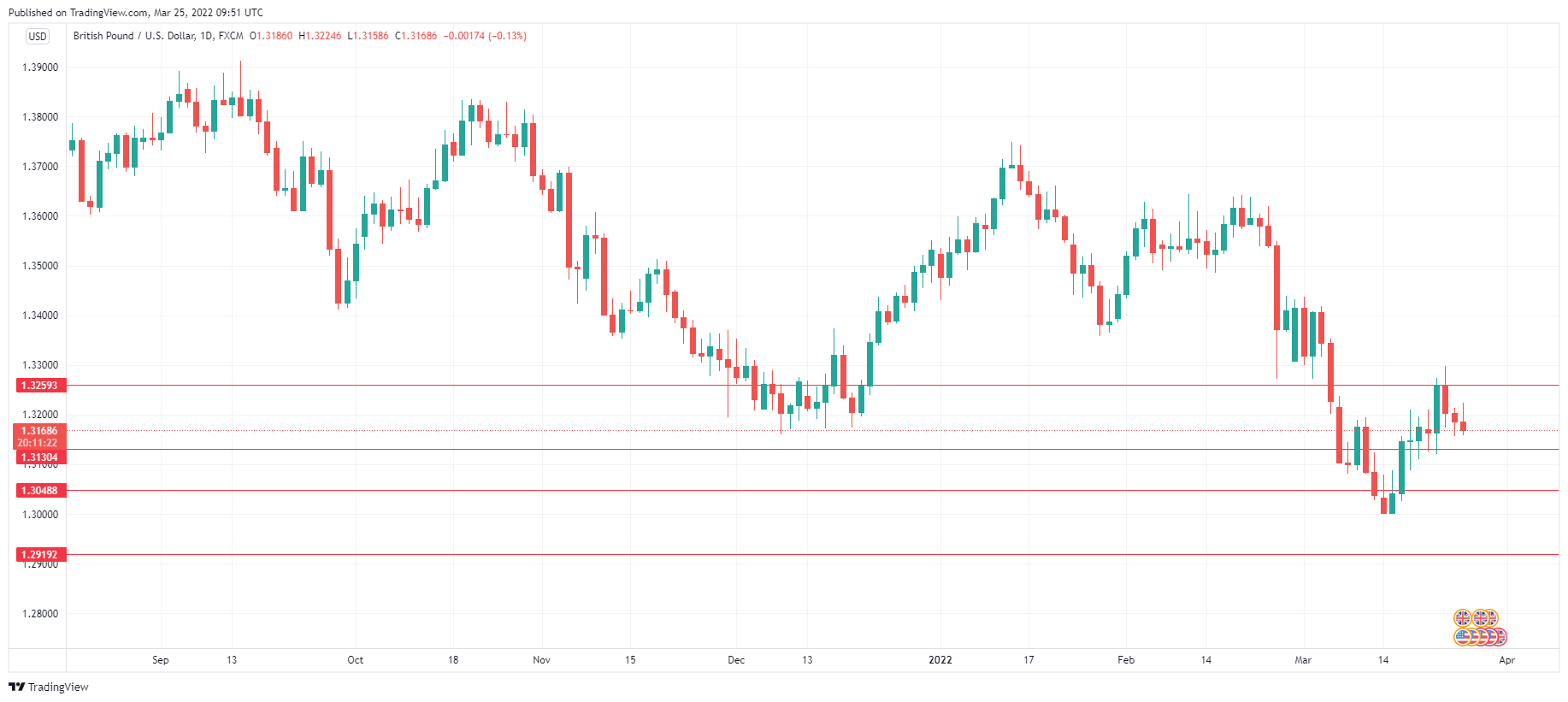The British pound is slightly lower on Friday after disappointing numbers from retail sales and consumer confidence.
UK retail sales, consumer confidence fall
Consumers held tighter to their pocketbooks in February, as retail sales declined. The headline figure showed a decline of 0.3% MoM, after a gain of 1.9% in January. This missed the estimate of 0.6%. Core retail sales fell by a sharper 0.7%, missing the forecast of 0.5% and down from 1.7% in January.
The GfK consumer confidence index fell to -31 in March, down from -26 previously. The index weakened for a fourth straight month. GfK attributed the dismal numbers to the surging rise in the cost of living, rising Covid cases and the war in Ukraine, adding, “There is an unmistakable sense of crisis in our numbers”.
Inflation has been hitting consumers hard, with CPI climbing to 6.2% in February, a 30-year high. This has forced consumers to cut back on spending and has dampened confidence, which was reflected in the February releases. The numbers will add to the pressure on the Bank of England to continue to raise rates, but the BoE finds itself in a dilemma – the rate tightening cycle will have to continue to wrestle inflation lower, but the war in Ukraine and rising energy prices could slow the economy later this year, and aggressive tightening could choke off economic growth.
In the US, there was positive news on Thursday, as unemployment claims fell to 187 thousand, its lowest level since 1969. The numbers point to a robust labor market, as companies continue to struggle to find enough workers to fill openings. Federal Reserve Chair Powell and other Fed officials continue to convey a hawkish tone, as the Fed seeks to reassure the markets that it is bent on wrestling down inflation, which has become the Fed’s Public Enemy Number One.
GBP/USD Technical
- GBP/USD faces resistance at 1.3259 and 1.3341
- There is support at 1.3130 and 1.3048


